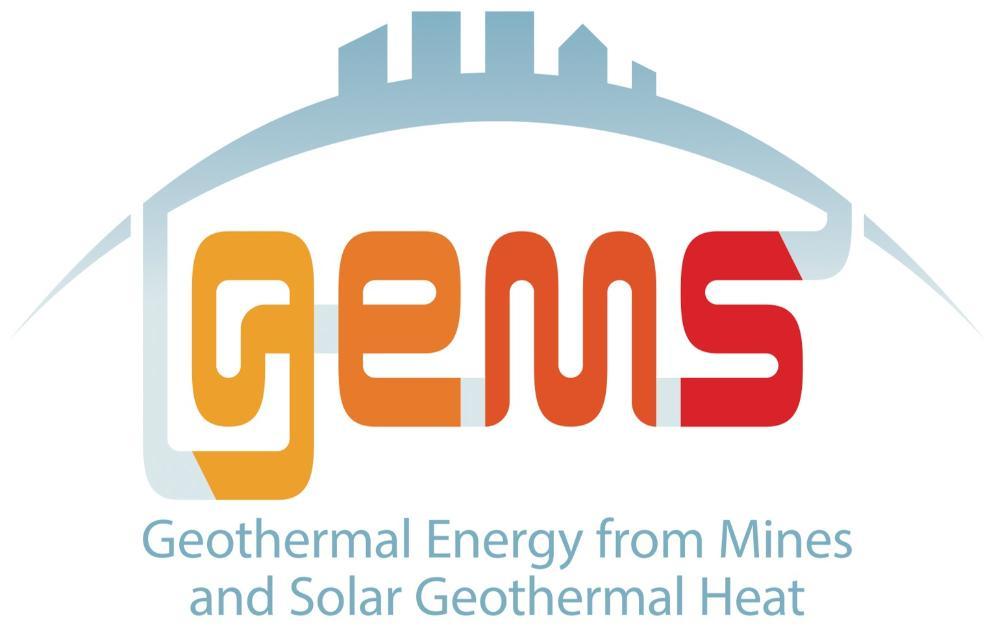Geothermal Energy from Mines and Solar-Geothermal Heat (GEMS)

A DEI interdisciiplinary project exploring whether water from flooded, abandoned mines could be used as a low-carbon, geothermal source of heat for the UK’s homes.
Project led by Professor Jeroen van Hunen (Earth Sciences).
It has been estimated that there is enough heat within the UK’s coalfields to meet the demands of all the buildings that lie over them. It could therefore particularly benefit economically disadvantaged former mining communities.
Durham Energy Institute is renowned for tackling the decarbonisation transition in a holistic way, integrating the social, scientific and engineering sciences to produce innovative insights and solutions.
The research team includes experts from the University’s Business School, Earth Sciences, Engineering and Anthropology departments, brought together through the University’s innovative Durham Energy Institute.
The team will work with the British Geological Survey (BGS) and industrial and governmental experts to assess and address the technical, social, and financial challenges and risks of exploiting disused, flooded coal mines as a source for long-term sustainable heat for homes and businesses in the UK.
The project combines novel simulation tools, innovative heat storage solutions, thorough evaluation of the governance and economic landscape, and community participation, this interdisciplinary project will provide integrated solutions, from initial heat extraction to the end user, for maximising mine water geothermal heat energy.
The GEMS team will be using the BGS run UK Geoenergy Observatory in Glasgow as part of the project. The UK Geoenergy Observatories are a £31million investment by the UK government through UK Research and Innovation (UKRI), and the Natural Environment Research Council (NERC). At the Glasgow Observatory, 12 boreholes have been drilled into flooded mine workings and equipped with a range of sensor systems. These will provide essential data from underground for the project.
International partners from policy, regulatory and industry sectors include the Coal Authority, Mijnwater BV in the Netherlands, Durham County Council, Clyde Gateway, Glacier Energy, Lanchester Wines, and Geoenergy Durham.
Find out more about Durham Energy Institute geothermal energy research and activity.
Project Team
Durham University researchers:
Professor Jeroen van Hunen, Department of Earth Sciences (Project lead)
Professor Stefan Nielsen, Department of Earth Sciences
Dr Stuart Jones, Department of Earth Sciences
Professor Tony Roskilly, Department of Engineering
Dr Zhiwei Ma, Department of Engineering
Dr Huashan Bao, Department of Engineering
Prof Simone Abram, Department of Anthropology
Prof Sandra Bell, Department of Anthropology
Dr Laura Marsiliani, Department of Business School
The British Geological Survey researchers:
Project Partners
UK Geoenergy Observatory in Glasgow run by BGS
The UK Geoenergy Observatories are a £31million investment by the UK government through UK Research and Innovation (UKRI) and the Natural Environment Research Council (NERC). At the Glasgow Observatory 12 boreholes have been drilled into flooded mine workings and equipped with a range of sensor systems which will provide essential data from underground for the project.
The Coal Authority supporting the project with mine data and detailed knowledge of the mines and regulatory procedures.
Mijnwater BV, Heerlen, the Netherlands which executes the most successful mine geothermal district heating project in the world.
Durham County Council who are implementing mine geothermal projects in their area.
Clyde Gateway Scotland’s biggest regeneration programme supporting the UKGEOS site.
Glacier Energy key industrial provider providing valuable insight and support on sorption energy technical and logistical aspects.
Lanchester Wines a pioneer in Minewater Geothermal Heating in County Durham, providing essential operational data to calibrate numerical models, and technical/logistical experience.
Geoenergy Durham presently operating a project from the Hebburn colliery to provide district heating to South Tyneside.
Useful web links:
Our Geothermal Energy research
Our Decarbonising Heating and Cooling research
Durham-led Network for Heating and Cooling Research to Enable a Net-Zero Carbon Future


/prod01/prodbucket01/media/durham-university/research-/research-institutes/durham-energy-institute/landscapes-cityscapes-montages-etc/Walney-sunset-2000X800.jpg)
/prod01/prodbucket01/media/durham-university/research-/research-institutes/durham-energy-institute/technologies/heat--cooling/Heat.png)
/prod01/prodbucket01/media/durham-university/research-/research-institutes/durham-energy-institute/technologies/hydrogen-and-helium/Hydrogen_02-periodic-table.png)
/prod01/prodbucket01/media/durham-university/research-/research-institutes/durham-energy-institute/events/Network-H2-_Expo-Image.png)
/prod01/prodbucket01/media/durham-university/departments-/chemistry/71353.jpg)